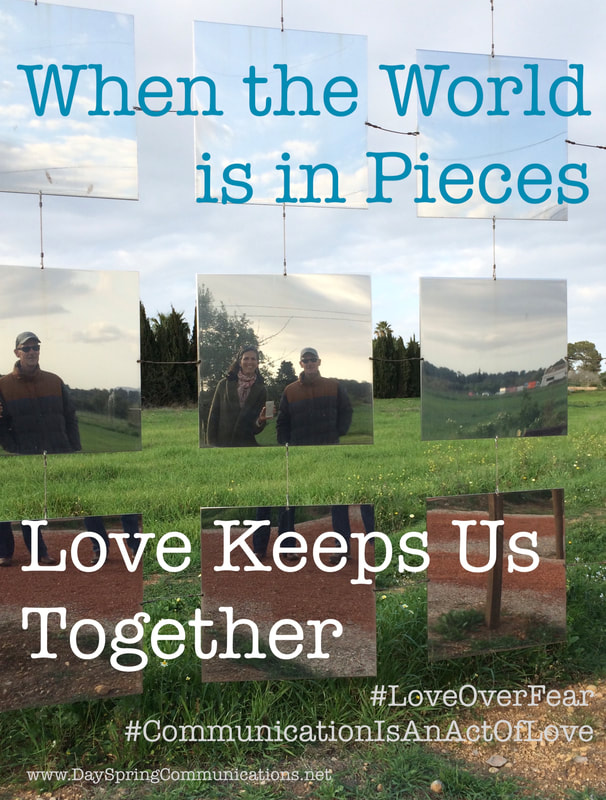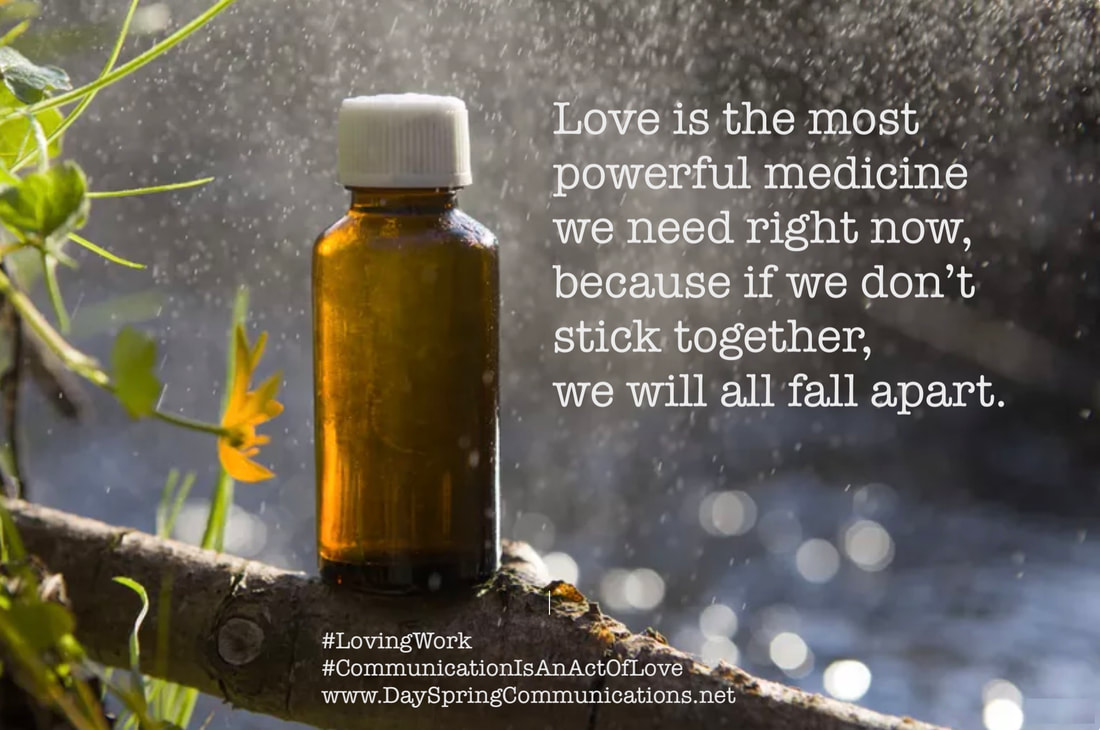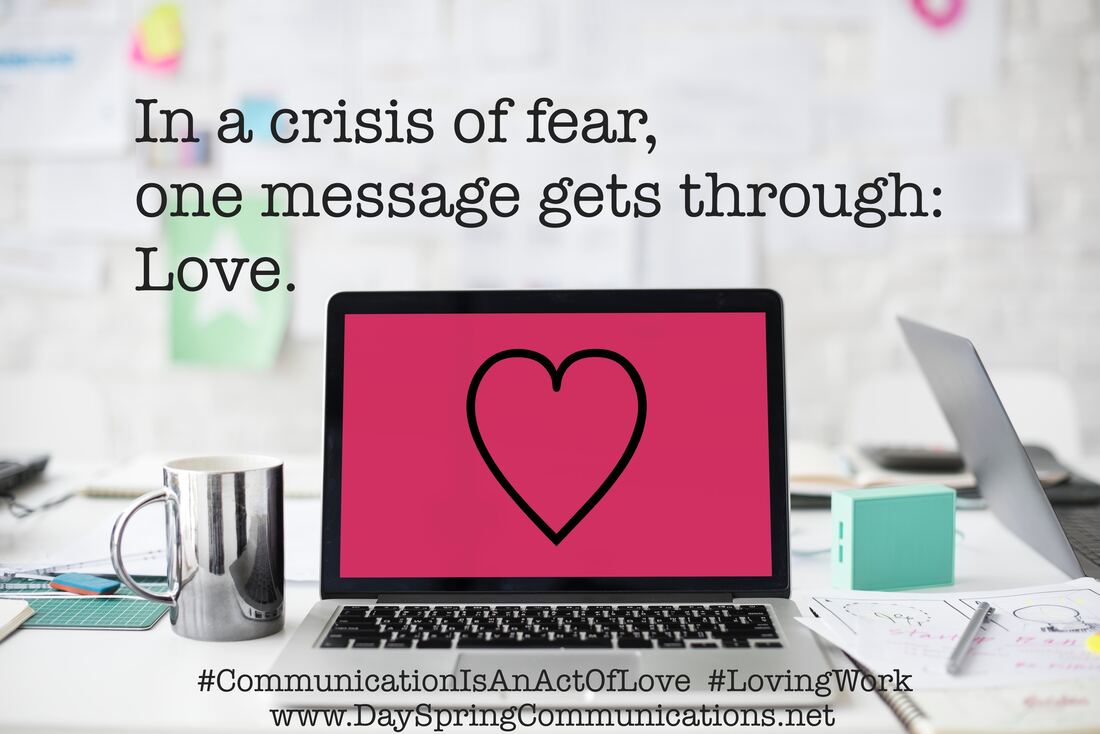|
There’s not one car in the street. Not one person walking outside in our usually vibrant neighborhood. The air is eerily still and silent and heavy with loss. We’ve lost predictability, order, economic security. We’ve lost jobs, money, school for our kids. We’ve lost a sense of routine, structure, normalcy. We’ve lost the chance to socialize with others other than via a tiny screen in our hands or on our desks. We’ve lost our ability to plan pretty much anything. We may have lost health or loved ones. And some of us have lost our sense of meaning. Amidst all that's missing, I notice something else that has taken up residence: a dull gnawing in my gut. A cluster of emotions I recognize as grief. Grief can shepherd us from great despair to deep peace. It can even Grief always accompanies moments of loss. It’s a special cocktail of feelings that each of us experiences differently. For me, it’s thick and murky. It’s a journey through sometimes brutally strong emotions. Occasionally, when I’m grieving, I get a glimpse of serenity – the proverbial light at the end of the tunnel – but mostly it feels like I’m trying to swim through mud. That’s probably why my attempts to write about grief over the past several days have been so messy and fruitless. Thank goodness for the Harvard Business Review and this excellent interview with grief expert David Kessler. Kessler offers us good news: Grief can shepherd us from great despair to deep peace. Grief can even bring us to a greater sense of meaning – some clarity and understanding that wasn’t available prior to the triggering event. But this can only occur if we name our grief, embrace it, and stay with it. The way forward is through. We really, really need each other right now. In times of isolation, containment, quarantine and social distancing, our relationships are even more vital to our individual and collective resilience. We need each other to make sense of things, to chart that path toward understanding and meaning. And, staying connected, treating others with the extra empathy and tolerance we all require right now, is really only possible when we’re aware of our emotions and express them in constructive ways. So, even if it isn’t as popular as the latest hand-washing song-and-dance craze, now is the time to be honest with ourselves about grief. Honoring grief in this very confusing, stressful, unprecedented time is an act of self-awareness and self-love. It’s a powerful step toward deepening our connections with others. And it’s a move in the direction of finding meaning from this mess. Just for a moment, why not stop cleaning, checking Instagram, and sending funny videos? Why not sit, for a moment, with your own raw truth and its attendant grief? It won’t last forever. Kessler encourages us, “Let yourself feel the grief and keep going.” Let’s be courageous, not only with our health, our economic situation and each other, but also with ourselves and our emotions. Let’s uncover our own unique expression of grief and perhaps a bit more meaning. And let’s do that together. -- BE is the first principle of Authentic Communication, and it’s shorthand for the kind of self-awareness explored in this post. The second principle, LISTEN, is our most effective tool for connecting with others. And ACT, the third principle, represents the myriad ways we express ourselves with truth, clarity and authenticity. #AuthenticCommunication #CommunicationIsAnActOfLove #TheWayForwardIsThrough
3 Comments
I gotta admit, not every day is easy. Yesterday was day six of containment, and it was rough one for me. So I keep turning (again and again and again) to what I know works to sustain and lift me up: Gratitude, structure, deep breaths, feeling my feelings, banishing multitasking, giggling, and lots of Love – for myself and for others.
What’s working for you? #LoveOverFear #BePresent #SelfLove #AuthenticCommunication #CommunicationIsAnActOfLove Fear takes us out of the present moment and drops us somewhere down the road of an uncertain, unclear future. I find my way back to the comfort of “now” by placing my feet firmly on the Earth and taking a deep breath. Welcome home.
#LoveOverFear #Breathe #BePresent #AuthenticCommunication #CommunicationIsAnActOfLove During the latter years of my corporate career, I sat squarely in the midst of some of the most significant crisis issues our company ever faced. These were complex, high-profile problems that left the Fortune 500 multinational heavily exposed to financial and reputational risk. The issues seemed impossible to contain – every day they appeared to grow bigger and affect more and more people and aspects of the company.
Today, we’re all crisis managers. We’re navigating the extraordinary and constantly changing circumstances of living with a pandemic, crashing financial markets, strained health systems, increasing job insecurity, and countless other issues. Life today can seem incredibly stressful, exhausting, and overwhelming. Here are a few lessons I learned as a Corporate Crisis Communicator that might help. 1. It’s All About You. In order to hang in there through a crisis – any crisis – you have to take care of yourself. That’s why the airlines always remind us, “Put your own oxygen mask on first before helping others.” For me, that meant daily meditation and journaling and yoga classes when I could. Even though my schedule was just insane, I always had time to do what every human can do: Breathe. The practice of breathing long and deep rewires the brain to move you from fight-or-flight mode into creative thinking. There is no crisis management without first calming your own nervous system. Deep breaths offer the quickest, easiest path to that state. 2. Know Your Facts. In order to be clear about what’s actually happening, it’s vital to hone your understanding of the difference between facts and opinions. Facts are grounded in data; they're provable. Opinions are judgments. Even if an opinion is stated forcefully, that will not make it a fact. It’s natural to feel fear in these uncertain times, but fear is also not a fact. (So, um, no, you probably don’t need all that toilet paper.) 3. Know That You Don’t Know – and That’s OK. There is so much information circulating right now, and this is a constantly developing situation. Stay curious, and stay humble. You don’t need to know everything. You only need to know what will allow you to make good decisions for you, your family, your team, your company. Trying to know everything will add to the overwhelm. Be disciplined and stay focused on what’s really important to you and the role you’re playing. As one of my colleagues used to say, Swim in your own lane. It will contribute to your peace of mind. 4. Go to the Source. Identify reliable sources for the information you need. Just as a reminder, reliable sources are not memes on social media. In a world of fake news and alternative facts, please do yourself the favor of getting your information from a source that you can name. If you receive unattributed information (i.e., there is no credible name attached to it), you would be wise to question its veracity. If you doubt whether the media or politicians will provide unvarnished facts, go to the original source. For example, if you want to know more about the pandemic, you can go to the World Health Organization. For more info on the vicissitudes of the stock market, you can call you broker. If you’re worried about food, you can write to your supermarket chain’s head office, or, as my Mom recently did, take a personal approach and ask to talk to the store manager. 5. Engage the Right Support. Have conversations about who can do what. In a crisis it can be very tempting to want to move quickly to action, which often means trying to do everything yourself. The action will be less stress-inducing and more effective if it accesses a broad talent base. That might mean getting a colleague to review your work-from-home plan, or it might mean asking your elder child to help the younger kid learn to wash her hands well. We’re all in this together, and making requests helps us stayed connected – which also builds resilience at a time when we need it most. 6. Don’t Lose Your Sense of Humor. I had wonderful corporate colleagues who, no matter what tempest was raging, managed to make me laugh. One of them had a Weimaraner, and he knew I loved those dogs. In the midst of a crisis, he would tell me a story about some crazy thing she had done or send me a picture of the dog, and it would leave me giggly and refreshed to get on with the gazillion tasks at hand. Laughter is remarkable medicine. Even in the midst of a crisis, there is always something to be grateful for and something to laugh at, and someone to laugh with. Here’s a little joke to get you started: Knock, knock. Who’s there? Hatch. Hatch who? I sure hope you did that into your elbow! 7. Remember, It Won’t Always Be Like This. These wise words came to me from a dear friend when I was in the worst of the crisis mess. They calmed my heart and gave me space to recognize that I did have options – and that this, too, would pass. What the world needs now is Love, sweet Love. It's the only thing there's just too little of...
#LoveOverFear #ComeTogether #ResilienceInRelationships #CommunicationIsAnActOfLove #LovingWork As my friend @presidentaustinshowlove says, “Don’t forget to show love!”
#LoveOverFear #CommunicationIsAnActOfLove #LovingWork #AuthenticCommunication #BeListenAct The new coronavirus is a very real health threat. As it continues its march across the globe, stock markets are toppling, and basic systems like health, financial, industrial, education, and food risk collapse. This is global disruption the likes of which we haven’t seen at least since the global recession of 2008, and people everywhere are scared.
I am certainly not immune to the fear. But what really frightens me about this ever-changing situation is that it seems to foster isolation. The coronavirus is highly contagious. To keep ourselves safe, instinct and, in some cases, governments, tell us we should stay away from other people – disconnect and take care of ourselves and our own. But there’s an unspoken byproduct of distancing ourselves from others: Separation compromises our resilience, precisely when we need it the most. Resilience is the tendency and ability to bounce back from any curve ball that life throws at us – whether that’s the loss of a job, moving to a new city, or finding ourselves in the midst of today’s global panic. And resilience is nurtured by, among other things, our connections with other human beings. Every relationship flourishes or flounders depending on its quality of communication. In a time when our relationships are so vital to our resilience and overall wellbeing, they need special attention. They need to be fostered with conscious, authentic communication Here are some thoughts on how you can use communication to nurture relationships and boost your resilience even in a time of crisis:
The new coronavirus and the multitude of related issues are real, and they are stoking fear in people all over the world. We need to boost the immune systems in our bodies, and we also need to boost our emotional immune systems. The most effective way to do this is to privilege relationships to enhance our resilience. Now is not the moment to turn away from each other, but to lean in. To foster our connections with other human beings is to create a shield against the vicissitudes of the world – no matter how dramatic. |
MusingsHere you'll find some of my thoughts about communication, contemplation, yoga, life and various other topics. Thanks for giving them a read. Archives
February 2022
Categories
All
|








 RSS Feed
RSS Feed